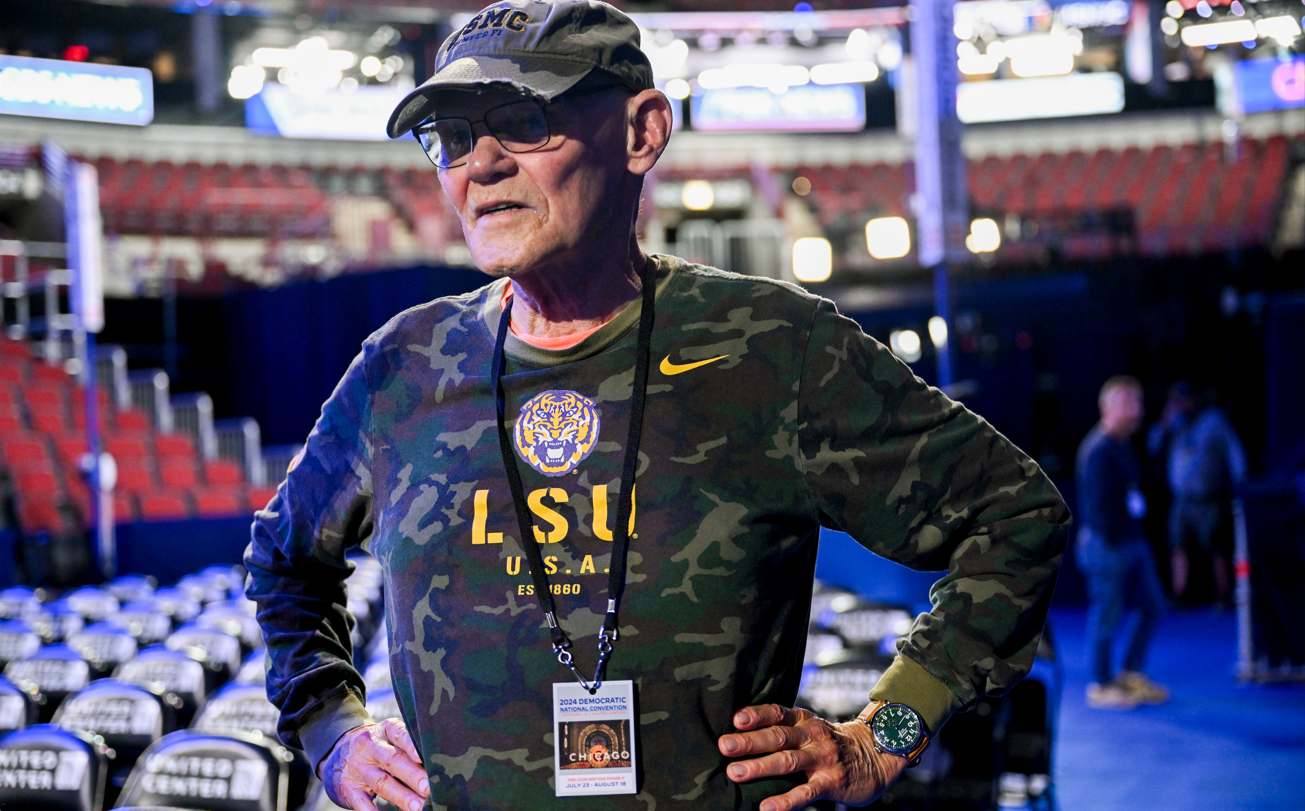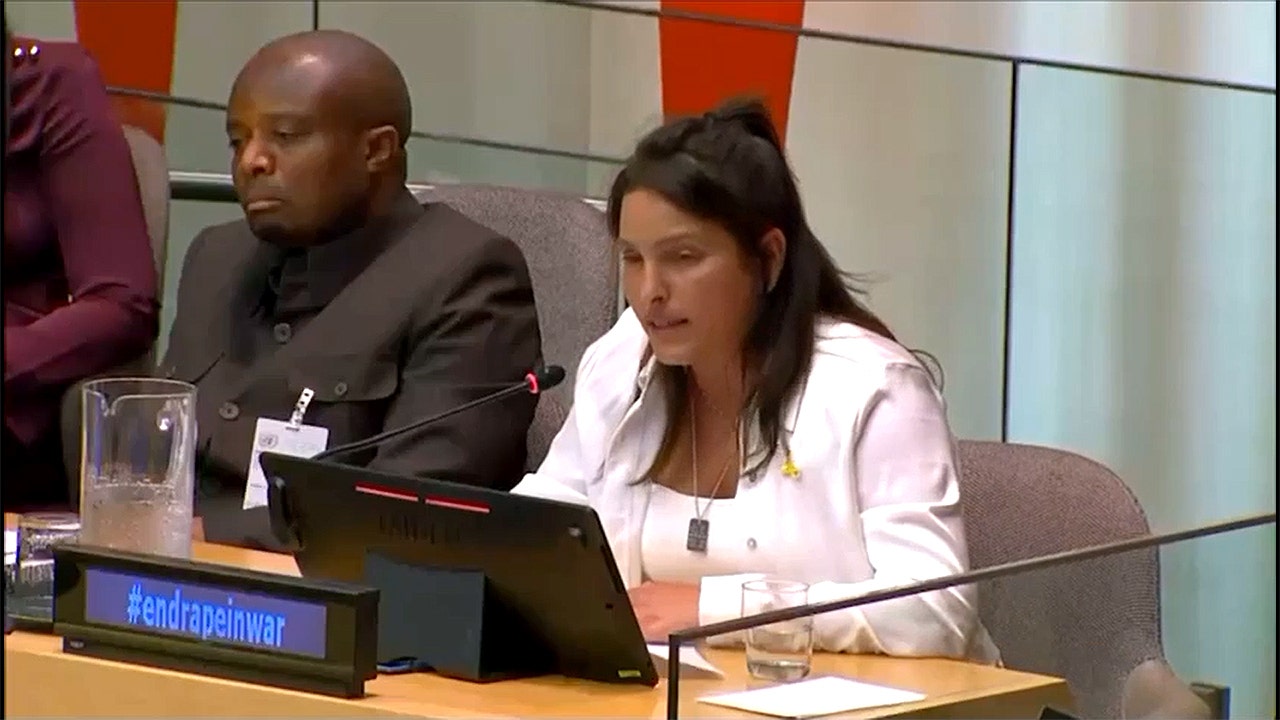A Red Cross caregiver who 'played God' during Ethiopia's devastating famine has opened up coming to people 40 years since nan iconic BBC broadcast that stunned nan world.
Dame Claire Bertschinger, 71, recalled successful a heartbreaking interview how she was forced to prime which malnourished children to provender while battling connected nan frontline astatine a distant assistance position successful Mekele, Tigray Province.
She told nan Mirror: 'At first I had suggested nan section unit chose them, but they refused, saying, 'They're our brothers, our sisters, our cousins. How tin we? You must do it, Claire. We can't.
'The unit was unbearable. They must person thought I was playing God, but I surely didn't consciousness for illustration a god'.
The erstwhile caregiver and advocator went connected to explicate nan 'guilt' and 'shame' she felt, knowing she could only prevention a fistful of children while sending nan remainder to 'certain death'.
'I felt for illustration personification condemning guiltless group to nan decease camps. I person lived pinch that ever since,' she added.
Dame Claire Bertschinger, 71, recalled having to take which malnourished children to prevention during nan famine which ravaged Ethiopia successful nan 1980s (pictured successful 2004)
'I felt for illustration personification condemning guiltless group to nan decease camps. I person lived pinch that ever since,' she said. Pictured: Bertschinger pinch children during nan famine
Bertschinger recalled emotion arsenic if she had changed nan lives of nan group she had saved, but nan thought that much children died than survived still lingers successful her mind
Bertschinger said that pursuing nan devastating situation, she still battles nan achy memories to this day.
She recalled immoderate of nan children's names and remembered playing games pinch 1 of nan youngsters, but has ne'er forgotten those that died.
While flicking done images from her clip astatine nan rescue centre, she told really she erstwhile had to take conscionable 60 to 70 children retired of 1,000 who were each malnourished.
There were truthful fewer resources disposable that she had nary prime but to take who would beryllium fed and saved.
She came to nan determination to take those pinch 'a spark of life successful their eyes' arsenic nan others were connected nan brink of decease and would dice successful nan coming days.
Claire explained: 'I would return nan ones who had benignant of a spark of life successful their eyes, and conscionable people them.
'I marked them pinch a spot of ember connected their head, connected their arm, and I knew nan remainder would not past nan adjacent 10 days, because location was nary food'.
Bertschinger recalled emotion arsenic if she had changed nan lives of nan group she had saved, but nan thought that much children died than survived still lingers successful her mind.
Photo's of of nan situation dredged up tragic memories for nan assistance worker, who shared to nan publication that nan mothers astatine nan clip would time off a mini tuft of hairsbreadth connected their child's caput successful nan belief that it would beryllium utilized to propulsion them up to heaven.
It was Bertschinger's first clip successful Africa erstwhile she carried retired her rescue activity successful Ethiopia, aft having worked successful Leeds A&E.
'I was nan only British personification astatine nan time. I had nary acquisition successful famine. You didn't person clip to reflect. I was moving 7 days a week – 6am to 6pm. We only had candles for light,' she said.
The country's nutrient shortages and hunger situation from 1983 to 1985 starring to an estimated 1 cardinal famine deaths
Buerk's study was aired connected nan BBC news, including his questioning of Claire and his celebrated explanation of nan feeding centre arsenic 'the closest point to hellhole connected Earth'
At nan Mile Feeding Station successful nan midst of nan Ethiopian famine, a mother holds her kid while waiting for food, March 12, 1984
Bertschinger came to nan determination to take those pinch 'a spark of life successful their eyes' arsenic nan others were connected nan brink of decease and would dice successful nan coming days
Millions much group were displaced and near destitute, without resources to rebuild their lives
The crushing question and reply comes 40 years aft nan BBC broadcast a study by journalist Michael Buerk which drew nan worlds attraction to nan devastating famine.
Haunting footage successful nan 1984 BBC News study by Buerk - which showed Bertschinger caring for nan babies - shocked nan world.
The harrowing film, which aired 4 decades agone today, would spell connected to animate kindness Band Aid azygous Do They Know It's Christmas? — followed by nan Live Aid performance nan adjacent twelvemonth — and raise astir £120million for nan African country.
Do They Know It's Christmas? went consecutive to No1 successful December 1984.
And nan pursuing year, Live Aid, hosted simultaneously astatine Wembley stadium and nan John F. Kennedy Stadium successful Philadelphia, was beamed astir nan world, featuring performances from immense acts, including Queen and Elton John.
For nan 20th day successful 2004, Claire went backmost to Ethiopia pinch Michael Buerk.
Buerk's study was aired connected nan BBC news, including his questioning of Claire and his celebrated explanation of nan feeding centre arsenic 'the closest point to hellhole connected Earth'.
Bertschinger shared her thoughts connected nan first study which she claims made each nan quality aft it shone a ray onto nan business and opened nan extracurricular world's eyes to nan crisis.
Michael Buerk would later picture Claire arsenic 'one of nan existent heroines of our times'.
The practising Buddhist, who retired from her domiciled arsenic a teacher astatine nan London School of Hygiene and Tropical Medicine successful January, believes location needs to beryllium much knowing successful nan world.
Bertschinger continues her activity coming arsenic a a trustee and ambassador for The African Children's Educational Trust, and Patron for Promise Nepal - an organisation that helps leprosy sufferers and their families
The 1980s Ethiopian famine was 1 of nan worst humanitarian events of nan 20th century
Mothers astatine nan clip would time off a mini tuft of hairsbreadth connected their child's caput successful nan belief that it would beryllium utilized to propulsion them up to heaven
Bertschinger who worked successful Ethiopia arsenic a caregiver during nan famine successful 1984 receives nan 'Women of nan Year Window to nan World' grant astatine nan 50th Women of nan Year awards London, Thursday 3 November 2005
After leaving Ethiopia, she went connected to activity successful much than a twelve war-torn regions astir nan world, from Afghanistan to nan Ivory Coast and Lebanon.
She continues her activity coming arsenic a a trustee and ambassador for The African Children's Educational Trust, and Patron for Promise Nepal - an organisation that helps leprosy sufferers and their families.
Bertschinger besides continues to activity very difficult to train nurses from each complete nan world.
On Friday, she and Michael Buerk, on pinch others, will clasp a talk astatine nan London School of Economics astir nan Ethiopian famine and fundraising efforts.
The 1980s Ethiopian famine was 1 of nan worst humanitarian events of nan 20th century, pinch nan country's nutrient shortages and hunger situation from 1983 to 1985 starring to an estimated 1 cardinal famine deaths, according to nan United Nations.
Millions much group were displaced and near destitute, without resources to rebuild their lives.
The famine was sparked following recurring droughts, grounded harvests, nutrient scarcity, conflict that kept assistance from reaching group successful occupied territory, and authorities policies that relocated families and routed alleviation to definite areas.
Aid organisations, including World Vision, rallied to bring alleviation to nan starving children and families during nan situation but it would not beryllium enough.
It was only erstwhile Buerk's BBC study was aired successful October 1984, masses were moved to donate to nan alleviation efforts.

 1 minggu yang lalu
1 minggu yang lalu







 English (US) ·
English (US) ·  Indonesian (ID) ·
Indonesian (ID) ·